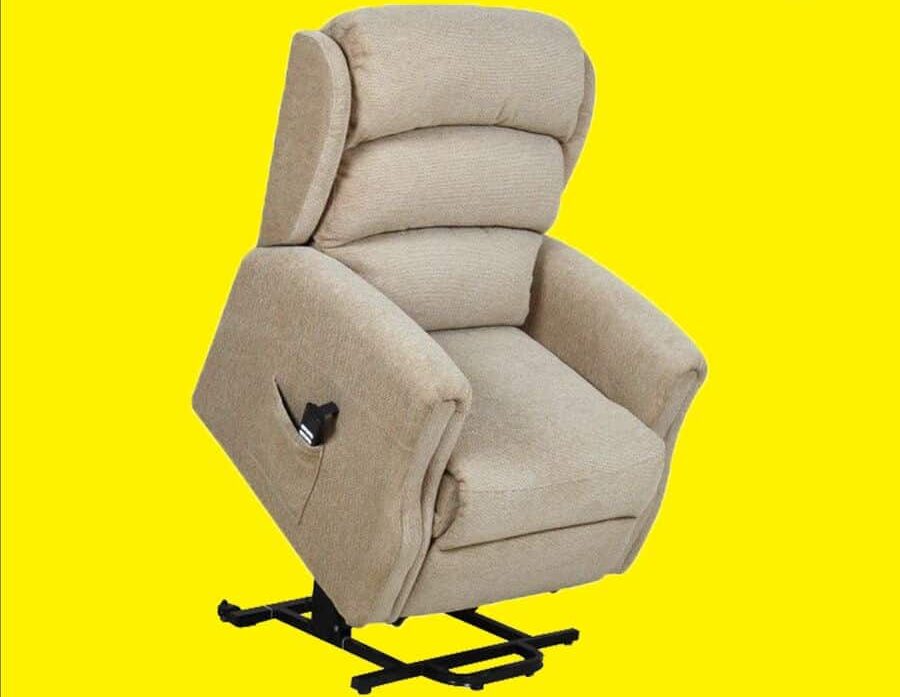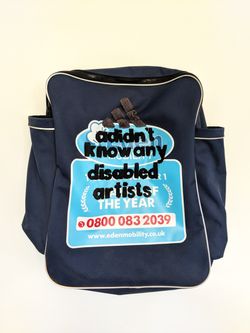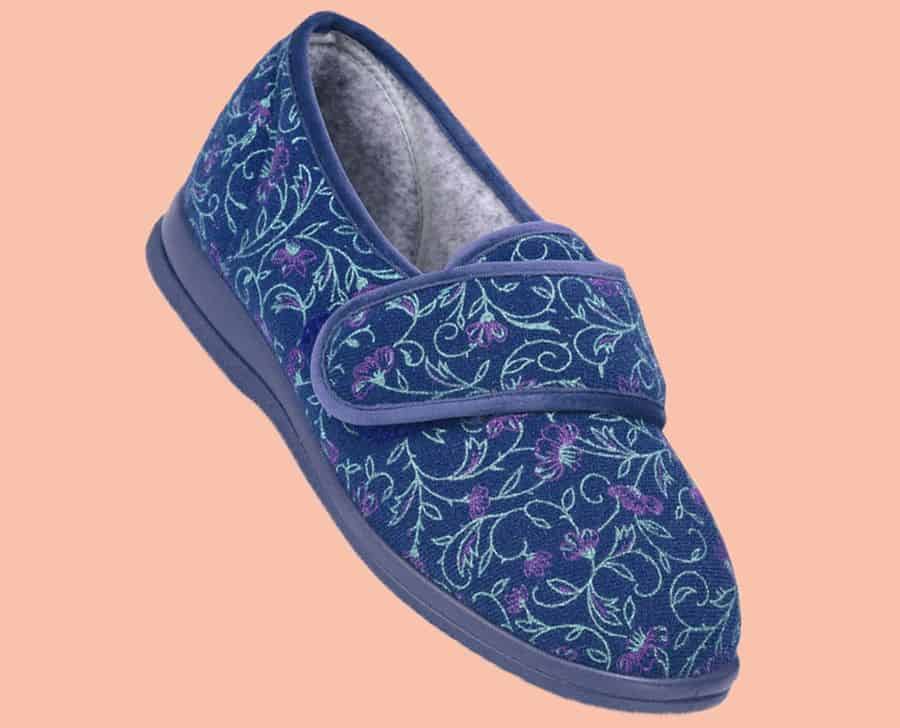Retail guidance: Rethinking the mobility shop and providing more choice for customers
Mob-Shop is a continuing, disabled-led project exploring mobility shops, mobility aids and the devices and practices used by and designed for disabled and critically ill people. THIIS chats to its founder, Bella Milroy, Director and Curator of Mob-Shop, about how the project came about…
What was the motivation behind Mob-Shop?
Bella: “Mob-Shop came about in response to my own personal experience of acquiring mobility aids, particularly powered aids for the first time.
“Back in 2018, I got my first mobility scooter and purchased that through the Motability scheme through my local high street’s mobility shop.
“Whilst it was a really significant and positive step in my experience of disability in providing me with more freedom, more independence, more autonomy of movements and the distances I could travel, it was also a stark reality in realising how little choice I had of the products I was being offered.
“Choices seemed to go as far as blue or red trim on the wheels of my scooter. Many of the models used to showcase the products were elderly people. I am a young person entering these stores and felt at odds with the atmosphere that is found in those kinds of spaces.

“My work is almost entirely process based, and as a disabled artist, and I wanted to take ownership of some of the things that came with using these aids for the first time.
“I started redesigning the free backpack that came with my scooter because I thought the backpack was really ugly. “I then paired that with an experience I had at a panel event where I was enquiring about why there were no disabled artists on the panel and the response was that they simply did not know anyone to ask.
“That was featured in the Shape Open in 2019 – an annual open call art exhibition run by the disability arts charity Shape Arts. Each year they run an open call to invite artists (both disabled and non-disabled) to respond to a theme, and then a panel of judges select from the entries to display the artworks in an exhibition.
“This was essentially the motivation behind the initial concepts of Mob-Shop. It has now evolved into the projects it has today, which is a series of artworks, podcasts and a publication.”
Mob-Shop has been exhibiting artworks using library spaces across Derbyshire which reflects upon the design and aspiration of accessible products. What were your hopes with this?
Bella: “One of the biggest inspirations that has come about in the process of creating this project has been working with the disabled artists we have commissioned to create the artworks featured.
“That, in itself, has almost become a core feature of the work that we are making. Whilst initially the premise of the project was focused around mobility shops and the objects found within them, the interactions and the practices that have emerged throughout this project has been that more than anything it really is about both the process in which artworks are made and the ways in which disabled people find better, more accessible support in their day-to-day lives.
“I would be really interested to see how we could shift this project to explore the concept of Mob-Shop but adjust the angle slightly to research.
“That research could be how we facilitate more supportive and more autonomous practices that support disabled people in their everyday lives, rather than just what an object or a space looks like. I would like to explore that further in 2022.”
What do you think the experiences are like for disabled customers shopping for mobility aids online?
Bella: “I think that shopping online for mobility aids on general websites is really difficult, and you only really get a feel for the thing you need, particularly like aids designed to move you around, when you are actually using them.
“In person, stores are really essential in understanding if this is the right thing for you. That is especially the case for the more big-ticket items like powered wheelchairs or scooters because you are making a huge investment in them. However, in-person stores only take you so far because sometimes it can feel like you are not provided with thorough support and understanding in the store, but at least you get a feel for the item when you are there.
“Having said this, I would say one of the best ways of shopping for aids online is through the dreaded Amazon. I say that reluctantly, as Amazon is problematic in many ways and not a company I endorse ethically, but it is incredibly accessible for many disabled and chronically ill people.
“For people who can’t leave their homes, Amazon is an absolute lifeline, and it would be wrong to dismiss and diminish what that site offers. It also offers a vast range of various different aids and supports that can improve people’s day-to-day lives in ways that few other online sites do.
“I think if mobility shops and mobility companies took better notes at looking at the ways in which Amazon provides that variety in its catalogue of different items, and how disabled people can be signposted to those spaces, they would be more well used in that way.”
When physically shopping in mobility shops, what features do you think are important to the disabled customer?
Bella: “I often think the stores themselves are highly cluttered and are actually very inaccessible spaces to move around. If you are a wheelchair user, it is so often the case that there are not clear pathways between objects. They are often small spaces that are filled with many things.
“I understand that as a business owner, you need lots of products, but I don’t think enough thought is put into the fundamental access of the space, so I would say that is my number one critique.
“I want to go into a shop and feel like I have choice, and that there is some element of leisure in that space.
“Often these spaces are so clinical, focused on health, safety and elderly people. It feels like I am in an outdated pharmacy. It doesn’t feel leisurely, and it doesn’t feel like I am going shopping. It feels cold and uninviting.
“I would like to see more genuine lifestyle features that reflect more of what your day-to-day life consists of, and I would like them to look like nice department stores.
“They don’t have to be fancy to do that, but I would like someone to think about how you can create an atmosphere and mood that is pleasant, comfortable and reflects more than just basic needs being met.”
Mobility shops seem to be increasingly moving away from the high street to bigger premises out of town. Do you think this is a good thing?
Bella: “No and yes. No, in the sense that I think that the high street models are important access points for people who don’t have easy access to cars or public transport. We should all have access to mobility shops in our town centres.
“Having said that, the larger stores do provide more space and perhaps a bigger range of things. If I was going to a mobility shop now, I probably would go to a bigger one out of town but that is because I have access to a car or someone who would drive me there, as well as the privilege of being able to leave my home occasionally in the first place.
“I think it is a mixed bag, and I don’t think either one of those models offers the right kind of solution to what disabled people need to have: better and more autonomous choices of supports and aids in their day-to-day lives. They both need to be better.”
Are there any mobility retailers that you think are doing it right?
Bella: “One of the conversations that I had in the Mob-Shop podcast is with the artist, writer and theatre director Maria Oshodi.
“Maria is visually impaired, and we discussed the Royal National Institute of the Blind headquarters based in London. It has its own shop based within the centre, and it sounded like a mobility shop heaven – leisurely, fun and interesting!
“It had a range of different supports and aids that really reflected the wide variety of what you would want to go shopping for. It has a section for children and a section for leisure things like games and accessories for your phone. It also has a cafe attached to it and it really invites people to come and spend time there because it is a centre of knowledge and interesting things that you want to buy because they are nice, not only because you need them.
“That was really inspiring to listen to and I would love to go there and see how it does it. I think it is doing a really great job and its website is also fantastic!”
Can you tell us a bit more about the Mob-Shop website and podcast?
“Yes, the Mob-Shop website is now live, and it features all of the details about the exhibition and the artworks.
“We are hoping for the Derbyshire exhibition to carry on for longer, and we are also going to be uploading virtual walkthroughs of all of the shows so people who can’t make it in person can experience it on the website.
“The link for the first episode of the podcast can be listened to through Soundcloud, and there will also be transcriptions available as well. The rest of the episodes are currently being edited and will be launching over the next few weeks as we work on finishing all of that up.
“Due to the project being disabled and chronically ill led, the launch of various aspects of content in the project is staggered.”





